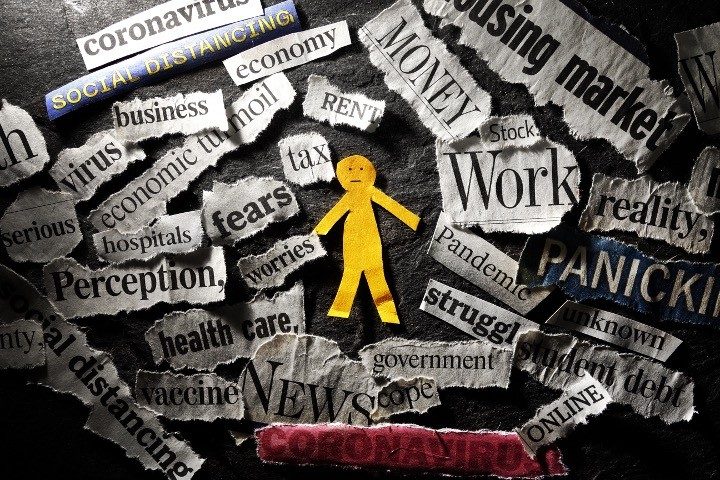
An overwhelming majority of Americans are tired and frustrated by the ongoing COVID pandemic, posing a problem for the Biden administration and the Democratic Party.
According to a Kaiser Family Foundation (KFF) survey published Friday, fatigue about the pandemic has affected most Americans regardless of political affiliation: 75 percent of respondents described themselves as “tired” of the pandemic, including 74 percent of Democrats, 72 percent of Republicans, and 80 percent of Independents.
Seventy-three percent of Republicans and Independents and 79 percent of Democrats said they were “frustrated” by the matter. Nearly a third of all respondents said they were “confused,” 40 percent were “angry,” and 42 percent felt “optimistic.”
Fatigue and frustration manifest themselves in a feeling of inevitability about contracting the virus. Seventy-seven percent of adults, both vaccinated and unvaccinated, feel most people in the United States will eventually get infected, the poll found.
Some Americans are starting to acknowledge the fact that the COVID vaccines are not helping to end the pandemic. The share of Americans attributing rising breakthrough infection rates to vaccine failure has increased since September, from 26 to 34 percent.
The overall public said that, compared to previous COVID waves, they were “more worried” about the impact of the Omicron surge on the economy and local hospitals, but “less worried” about the impact on their own personal lives. Black and Hispanic respondents and those with lower incomes reported higher levels of personal worries such as missing work due to COVID or becoming seriously ill or hospitalized.
Notably, vaccinated respondents were more likely than the unvaccinated to say they were worried about getting infected with, getting seriously sick from, or being hospitalized due to COVID.
Seventy-six percent of the unvaccinated respondents said they did not worry about Omicron adversely affecting them personally, while 65 percent of the vaccinated said the same.
Half of Democrats said the country’s biggest problem is the pandemic, while nearly as many Republicans said it is inflation, the survey found.
A total of 71 percent of survey participants said they were “very” or “somewhat” worried that restrictions aimed at stopping the spread of Omicron would hurt local businesses in their area, and 68 percent of respondents said they were worried that their local hospitals would be overwhelmed with COVID-19 patients or that other new and more-serious variants would spread in the United States.
The survey also found that Democrats were much more likely than Republicans to be afraid of their local hospitals becoming overwhelmed (86 percent vs. 50 percent) and of new variants emerging and spreading in the country (86 percent vs. 48 percent).
When it comes to the change in behavior related to Omicron, the vaccinated were more likely than their unvaccinated counterparts to use additional protections against the strain. Forty-nine percent of the vaccinated said they were more likely to wear a mask in public, compared to 25 percent of the unvaccinated, and 45 percent of the vaccinated also decided to avoid large gatherings, while only 15 percent of the vaccinated did the same.
The vaccination status and change in behavior closely correlate with the respondents’ party affiliation: 62 percent of Democrats said they were likely to use masks and 55 percent would avoid large gatherings, while only 22-23 percent of Republicans believed those measures were worth taking.
Despite the Biden administration and the president himself warning unvaccinated Americans of a “winter of severe illness and death” as Omicron made its way to America, the strain does not appear to be motivating unvaccinated adults to get a COVID shot. Only eight percent of those questioned said the strain has made them more likely to get vaccinated, but 15 percent said Omicron has made them less likely to do so. Those numbers suggest that the vaccines are not viewed by the unvaccinated as an effective tool for protection.
The KFF survey’s findings come as recent polling has shown that President Biden’s approval ratings, and more specifically approval of his handling of the pandemic, have steadily declined.
A Pew Research Center poll published Tuesday found Biden’s approval rating on the pandemic had dropped from 65 percent last March to 44 percent this month.
Per the poll, the erosion in confidence in Biden’s handling of the pandemic has come among members of both parties, but is especially evident among Democrats.
Biden ran for president on the platform of “shutting down the virus,” harshly criticizing President Donald Trump for being unable to deal with the pandemic.
“I’ll put in place a plan to deal with this pandemic responsibly, I’ve already done it. I’m not going to shut down the country, I’m not going to shut down the economy, but I’m going to shut down the virus,” Biden said in some variation while on the campaign trail and after taking office, Townhall recalls.
Back in July, the president said the nation was “closer than ever” to declaring “independence from the deadly virus.”
In November, however, the number of deaths associated with COVID in 2021 surpassed the 2020 total — even though the vaccines were not available until December 2020.
Despite United States health authorities admitting that the vaccines prevent neither infection from nor transmission of the virus, vaccinations remain the cornerstone of Biden’s strategy to tackle the pandemic. And since evidence suggests the vaccines have a so-called negative efficacy, meaning they make their recipients more likely to catch the virus (see here and here), it’s no wonder the people are seeing that Biden’s “plan” is failing.





